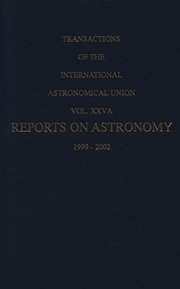No CrossRef data available.
Article contents
Critical Factors for a Successful Astronomical Research Program in a Developing Country
Published online by Cambridge University Press: 25 April 2016
Abstract
I discuss the critical conditions for undertaking a successful research program in a developing country. There are many important factors, all or most of which have to be satisfied: funding, library holdings, computing access, Internet access (e-mail, WWW, ftp, telnet), collaboration with astronomers in developed countries, provision of proper offices for staff, supply of graduate students, access to travel for conferences, ability to publish in international journals, critical mass of researchers, access to a telescope (for observational astronomers), support from and interaction with national electronics, optics and precision engineering industries, a scientific culture backed by a national scientific academy, and lack of inter-institutional rivalry. I make a list of a total of 15 key factors and rank them in order of importance, and discuss the use of an astronomical research index (ARI) suitable for measuring the research potential of a given country or institution.
I also discuss whether astronomers in developing countries in principle fare better in a university or in the environment of a government national observatory or research institution, and topics such as the effect of the cost of page charges and journal subscriptions on developing countries. Finally I present some statistics on astronomy in developing countries and relate the numbers of astronomers to the size of the economy and population in each country.
- Type
- Section 1: Survey Papers
- Information
- Copyright
- Copyright © Astronomical Society of Pacific 2001


